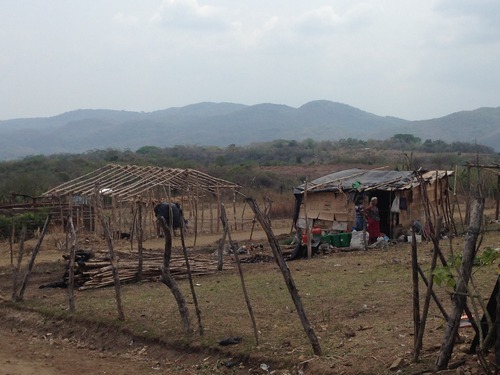Re-Discovering the Purpose of Words
There’s really not much that I enjoy about reading the centuries old versions of the Bible. However, there is at least one verse that has always stood out to me more than others as I read the King James Version. It’s found in Matthew 5:2, it’s the introduction to Jesus’ Sermon on the Mount. Matthew speaking of Jesus writes these words, “And he opened his mouth and taught them, saying:”
There is something very powerful and captivating about that sentence. Jesus up on the mountainside, surrounded by his disciples and likely many others, begins to text…. No, he begins to speak. While the substance of what he teaches still challenges us today, the deliberateness of his words, his posture among the people, and the purposefulness in his delivery continue to draw us to hear these words with understanding.
In The Making and Unmaking of Technological Society, author Murray Jardine seeks to take the reader through the loss of effectiveness in words while also directing our attention toward a hopeful future in which the spoken word can re-shape a world that is has diluted itself from meaning despite (and likely because of) the increasing volume of communications mediums. For Jardine there is “an implicit recognition that humans have a creative power, that is, an ability to change the world, in their capacity for speech.” (p.24) In his opinion, that hope is found in a transformational Christianity.
Our current world is full of acronyms, text-talk and abbreviations that are intended to speed up our capacity to communicate. Yet the means by which we engage one another with this communications has stripped away the depth of meaning in our words and the emotional engagement with our words. My own informal non-scientific observation is that because of the dramatic increase in our digital communication, fewer and fewer people are capable of grasping the nuances of actual verbal communication. There are an increasing number of people who are uncomfortable in conversation and easily offended in them. To recapture that capacity of using words intentionally, inter-personally may not change the world, but it could change someone’s life, if it is done with purpose that seeks to benefit the other.

This week, I’m in El Salvador, meeting with a team of about 28 team leaders from across Canada. One of the main activities of our week has been to build 9 homes for some of the poorest people in this country (above – these are the kind of homes we replace). This year our teams have built over 300 such homes. It’s an awesome privilege. Those 300 hundred homes, translates to about 1500 lives that have renewed hope and increased safety in a culture in which both are scarce commodities. However, it’s the one on one conversations that are always the most significant. When we get to sit with the families, share our story and then invite them to share some of their story, it’s always a powerful time because in the exchange of story, in the intentionality of listening we each learn a little more about the unique and transformational love that God has for all of us: We are mothers and fathers, with our own hopes and dreams, who care for the safety and well being of our children, who desire a chance to work hard in order to provide for our families, and who can both recognize our need for God’s help in getting through the ups and downs of life. Theirs is an oral culture, which is most demonstrated by the pride that is evident when you ask their name and they share all four of their given names.
While their stories challenge and convict our choices more; sharing our stories also strengthens our resolve and often encourages our own faith as we establish common grounds of understanding with people who are otherwise very different than us.
If we were only to build homes, then nothing else would matter. However, our focus has been to pray intentionally for these face to face exchanges where our stories can be shared, we can listen and we grow together in reshaping our communities. I think this is what Jardine was referencing when he speaks repeatedly about the negative effects of urban sprawl on a sense of despite relative proximity: “Even more important than it’s effects on certain types of people, however, is that sprawl utterly destroys pedestrian traffic. This means that it destroys any possibility of face-to-face communication among strangers and even among neighbors.” (p.257)
How dependent have we become on the digital transmission of words (ironic to ask this of a class that meets online)?
What changes could we make to be more purposeful in our face-to-face interactions, both as speakers and listeners?
The Gospel writer Matthew was so deliberate in his three-fold description of Jesus getting ready to speak, shouldn’t we also take time to reconsider how significant the way in which we use our words in purposeful, transformational, real-time, face-to-face interactions? Maybe, if we did, we would understand more fully the blessings that God desires us to know and enjoy.
Leave a Reply
You must be logged in to post a comment.